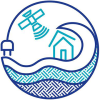Recommendations » For stakeholder groups:
Recommendations for governments
On this page
- 1. Analyse the country-level PILNA data and use findings to inform interventions, strategies, or activities if needed.
- 2. Disseminate PILNA results with diverse stakeholder groups, ensuring that education institutions, as well as school leaders and teachers, are included.
- 3. Enhance or support social and educational outcomes using PILNA insights.
- 4. Review the local education system’s readiness for school closures and continuity of learning measures and provide any required environmental or systemic supports.
Priority areas: How can governments support reading and formative assessment?
SPC-EQAP has identified two priority areas that apply across all recommendations for governments: (i)support is needed for student reading performance; and (ii) formative assessment practices. These areas can have substantial effects on student performance.
Governments can improve student reading performance through implementing the recommendations in the section below: crucially, supporting targeted interventions for reading performance (3.1), professional development for teachers (3.2), school resourcing (3.3), student support systems (3.4), and by providing guidance for stakeholders (3.5).
To advocate for reading, governments might also consider:
- facilitating book donations through partner countries, partner charities, twinning schools and hosting book drives;
- facilitating sponsorship of school libraries by local organisations, universities and other groups;
- facilitating celebrations of local authors with book days and events, with students offered copies of the texts;
- facilitate events to celebrate World Book Day; and
- facilitating sponsorship of story or poetry-writing competitions.
Governments can support formative assessment practices by strengthening or developing the strategies, policies, and national implementation of formative assessment. Governments could directly provide interventions that increase the understanding and use of formative assessment, or they could establish the policy foundations for it to be utilised.
An important part of setting these policy foundations is developing a culture of school-based evaluation. This involves developing or strengthening a common reference for teaching and learning goals and an understanding of how to evaluate them at a class, school and national level. All education stakeholders should be aligned in their assessment and evaluation of educational outcomes, including formative assessment in the classroom.
Critical policy considerations for formative assessment are to (OECD 2008 - Assessment for Learning Formative Assessment. 1st ed. [ebook] CERI OECD, pp.1-10.):
- keep the focus on teaching and learning;
- align summative and formative assessment approaches;
- ensure that data gathered at classroom, school and system levels are linked and are used formatively;
- invest in training and support for formative assessment;
- encourage innovation in formative assessment application; and
- build stronger connections between research, policy and practice.
1. Analyse the country-level PILNA data and use findings to inform interventions, strategies, or activities if needed.
National representatives will have their country data made available to them. These representatives are encouraged to establish analysis plans for the data and implement them with support from national or regional entities.
Challenges in student performance and well-being, education system and school resourcing, and teacher and school leader well-being were identified at the regional level and should be focused on, although unique national trends may also emerge from these analyses.
2. Disseminate PILNA results with diverse stakeholder groups, ensuring that education institutions, as well as school leaders and teachers, are included.
It is important to fully utilise national findings. Results from national level PILNA analyses should be made available to all relevant stakeholders and data should be shared where appropriate. Dissemination seminars are one method to reach large audiences with PILNA findings. Stakeholder specific workshops, such as those for teachers or school leaders, may also be useful.
Communication strategies that meet the needs of all national stakeholders should be planned and implemented, and should be inclusive, both geographically and demographically.
3. Enhance or support social and educational outcomes using PILNA insights.
National PILNA findings should be used, where appropriate, to create necessary change and improve social and educational outcomes. While national needs may be different from regional needs, some specific actions based on the regional PILNA findings are given below.
3.1. Design and deliver targeted interventions for student performance in literacy and numeracy if needed.
If substantial student performance gaps are found, governments are encouraged to design and deliver targeted interventions for students. This should be done in collaboration with education practitioners and leaders. Government stakeholders could take a supportive role in delivery, such as resourcing and planning, or directly engage with students and teachers.These interventions could be short and intensive to mitigate any learning that was missed or uniquely disrupted over the past few years. Addressing performance gaps in this cohort may help reduce any negative educational consequences that could emerge as they progress through schooling.The numeracy, reading, and writing sections outline specific areas that students had difficulty with across the region. These areas may be useful starting points for interventions.
3.2. Identify the need for, support and provide professional development activities for education professionals.
If needs are identified, government stakeholders should enable the development of education professionals in their country. Teachers and educators may have crucial development needs. PILNA regional findings suggest that development may be needed in three areas.· Numeracy and literacy teaching, particularly literacy teaching and, within this, teaching unstructured literacy areas, such as quality of ideas in writing· Formative assessment practices.· Strategies to support student well-being and students with learning difficulties.Government stakeholders might consider providing professional development activities directly or supporting the structures that enable professional development. The latter might include strengthening, resourcing or developing professional learning networks and other peer learning structures.
3.3. Identify and address any challenges to resourcing local education systems.
Governments are encouraged to address any resource challenges for their education systems that are identified. PILNA regional findings suggest that challenges could emerge in the areas of school infrastructure, teaching and learning materials, and teacher availability and quality. Collaborative and regional approaches to resource challenges are encouraged.
3.4. Review the effectiveness of national and local student support mechanisms in supporting student well-being and students with learning difficulties if relevant.
If challenges are identified with student well-being or if students with learning difficulties are not being adequately supported, governments are encouraged to review their student support mechanisms to ascertain if changes are needed. Governments could consider implementing national changes or supporting school and community-based efforts to strengthen student support.
3.5. Provide guidance to education bodies and the public on supporting literacy and numeracy education.
Where relevant, government stakeholders could consider providing guidance to all stakeholders on enabling and delivering good literacy and numeracy education. This might include guidance for teachers and educators about best practices in delivery; guidance for parents about how to support their child’s reading, writing, and mathematics outside of school; and guidance for community groups on how best to support schools.This could be achieved through formal communications plans and materials or by unstructured provision of expertise, such as the establishment of open communication with stakeholders.
4. Review the local education system’s readiness for school closures and continuity of learning measures and provide any required environmental or systemic supports.
External factors have affected learning environments in the Pacific region in recent years. School closures were common due to pandemics, epidemics and natural disasters. Governments are encouraged to review their readiness for school closures and other disruptions that could occur in the future.
Continuity of learning measures are a significant part of readiness in this area and should be assessed. Reviews might also consider the wider environmental and systemic features that influence these areas, such as internet infrastructure that enables online learning.
If you have any questions or comments about these recommendations, please contact SPC-EQAP.
Please also subscribe to our email updates, where we will continue to share suggestions and examples for supporting students and their learning in the Pacific region.








